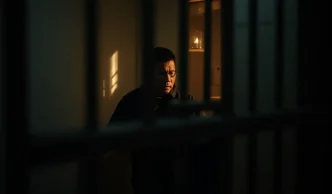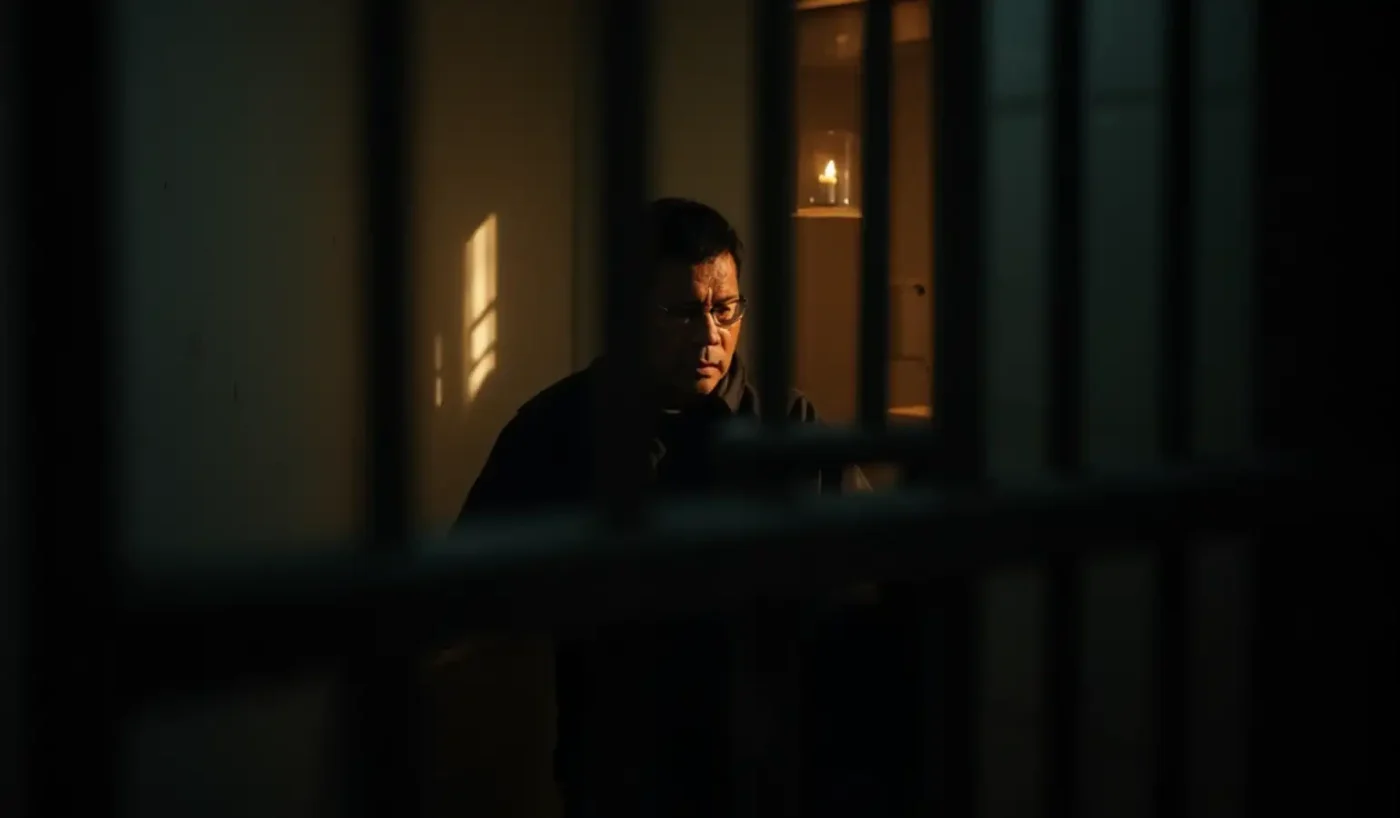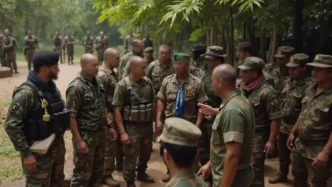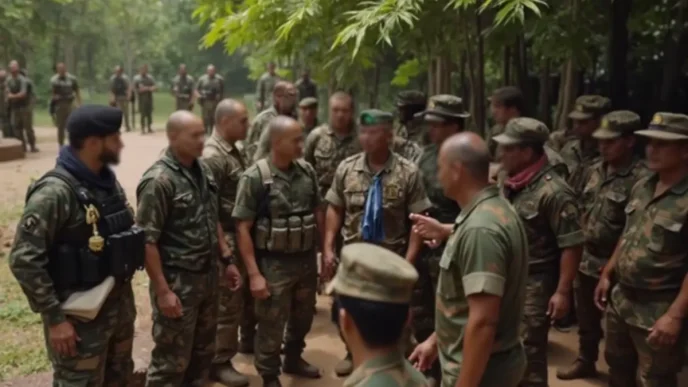In a striking turn of events, former Philippine President Rodrigo Duterte has won the mayoral race in Davao City, a political stronghold he has long dominated, despite being detained at the International Criminal Court (ICC) in The Hague. The victory, confirmed in May 2025, raises unprecedented legal and logistical questions about whether a jailed official can assume office while facing allegations of crimes against humanity tied to his brutal “war on drugs.” With thousands of deaths linked to that campaign—estimates range from 12,000 to 30,000—Duterte’s latest electoral triumph has reignited debates over accountability, governance, and the rule of law in the Philippines.
A Mayor Behind Bars
Duterte’s arrest and transfer to the ICC marked a historic moment for international justice, as he became one of the highest-profile figures to face charges at the tribunal. The allegations center on extrajudicial killings during his presidency from 2016 to 2022, a period when his administration’s anti-drug crusade drew global condemnation for its alleged human rights abuses. Now, even as he awaits a confirmation of charges hearing scheduled for September 23, 2025, Duterte has secured a new mandate from the people of Davao City, a southern metropolis where he previously served as mayor for over two decades.
The timing of his victory coincides with lingering public anger over his past policies. On March 28, 2025—Duterte’s 80th birthday—demonstrators gathered at Liwasang Bonifacio in Manila to demand justice and his conviction by the ICC. Images from the protest captured a crowd holding placards and chanting slogans, a vivid reminder of the deep divisions his legacy continues to provoke. Yet, in Davao, loyalty to the Duterte name appears unshaken, as voters handed him a landslide win despite his physical absence from the campaign trail.
Legal Limbo: Can Duterte Take Office?
The core question now is whether Duterte can legally and practically assume the role of mayor while detained thousands of miles away in the Netherlands. According to a position paper by Undersecretary for External, Legal and Legislative Affairs Romeo Benitez of the Department of the Interior and Local Government (DILG), no Philippine law explicitly disqualifies Duterte from taking his oath of office due to his detention. Benitez emphasized that the Constitution, the Administrative Code, and the Local Government Code mandate all public officials to swear an oath before assuming their duties.
“In administering oaths of office, personal appearance is required as the oath needs to be signed in the presence of the authorized official” said Benitez. He noted that, in Duterte’s unique circumstances, the nearest authorized officials are the Philippine ambassador and consul to the Netherlands, both presidential appointees subject to confirmation by the Commission on Appointments. J. Eduardo Malaya, the Philippines’ ambassador in The Hague, could potentially play a role in this process.
However, logistical hurdles remain. Benitez referenced Article 6 of the Vienna Convention, an international agreement on diplomatic relations to which both the Philippines and the Netherlands are parties, which allows consular officers to exercise functions outside their district under special circumstances and with the host state’s consent. The DILG has deferred to the Department of Foreign Affairs to navigate the specific protocols and secure ICC permission for such an arrangement. DILG Secretary Jonvic Remulla has publicly stated that they will formally request the ICC to allow a Philippine consul to administer the oath, a move that could set a global precedent.
Governing from a Cell?
Even if Duterte manages to take his oath—scheduled for June 30, 2025—his detention poses a significant barrier to performing the duties of mayor. Benitez clarified that if Duterte is sworn in, his physical and legal incapacity to govern would trigger provisions in the Local Government Code. Under Section 46, the vice mayor automatically assumes the role of acting mayor in such scenarios. In this case, Vice Mayor-elect Sebastian Duterte, Rodrigo’s son, would step into the position. Additionally, the highest-ranking member of the Sangguniang Bayan (city council) would be designated by the DILG secretary as acting vice mayor, per Administrative Order No. 15 of 2018.
The situation becomes more complex if Duterte is unable to take his oath within six months of his proclamation. Under Section 11 of the Omnibus Election Code (Batas Pambansa No. 881), failure to qualify for office within this timeframe—unless due to causes beyond the official’s control—results in a permanent vacancy. This would elevate the vice mayor to the position of mayor and the top-ranking sanggunian member to vice mayor, effectively sidelining Duterte from the role he won. “The DILG shall recognize the validity of the oath of office administered to a public official, including FPRRD, so long as it complies with Philippine constitutional and legal requirements” said Benitez, using Duterte’s initials as Former President Rodrigo Roa Duterte. The department has pledged to monitor developments closely.
Public Sentiment and Political Implications
Duterte’s victory in Davao City underscores the enduring political clout of his family in the region, often referred to as “Duterte Country.” His populist rhetoric and iron-fisted approach to crime have maintained a loyal base, even as international scrutiny over his human rights record intensifies. Political analysts suggest that his win reflects not just personal popularity but also a broader rejection of perceived external interference by bodies like the ICC. “Davao voters see this as a way to thumb their nose at international critics” said Maria Lopez, a Manila-based political commentator. “It’s less about governance and more about defiance.”
Yet, opposition voices remain vocal. Human rights groups and families of victims of the drug war continue to push for accountability, viewing Duterte’s detention as a rare opportunity for justice. The Manila demonstration on his birthday highlighted the unresolved pain of thousands who lost loved ones during his presidency. If confirmed, the ICC charges could lead to a trial that keeps Duterte detained for years, further complicating his ability to engage in Philippine politics.
A Test for Philippine Democracy
The Duterte saga is more than a legal curiosity; it is a test of the Philippines’ democratic institutions and their ability to navigate uncharted territory. The interplay between national laws and international obligations—such as cooperation with the ICC—raises questions about sovereignty and the limits of electoral mandates. Legal experts argue that allowing Duterte to take office, even symbolically, could undermine the credibility of the ICC process, while barring him outright risks alienating his supporters and fueling populist backlash.
Moreover, the case highlights the challenges of governing in an era of globalized justice. If the ICC permits a consular official to administer the oath, it could set a precedent for other detained leaders seeking to retain political influence from afar. Conversely, a refusal could reinforce the tribunal’s authority but potentially inflame tensions between Manila and The Hague. “This is a delicate balancing act for both the Philippine government and the ICC” said Professor Antonio Reyes of the University of the Philippines College of Law. “Every decision will be scrutinized.”
Looking Ahead
As the June 30 deadline approaches, all eyes are on the DILG, the Department of Foreign Affairs, and the ICC for clarity on Duterte’s fate as Davao’s mayor. Beyond the legal intricacies, the situation encapsulates the broader struggle over Duterte’s legacy—whether he is remembered as a champion of order or a symbol of impunity. For now, the people of Davao wait to see if their chosen leader will govern from a cell in The Hague, or if his latest victory will remain a symbolic but hollow triumph.
















